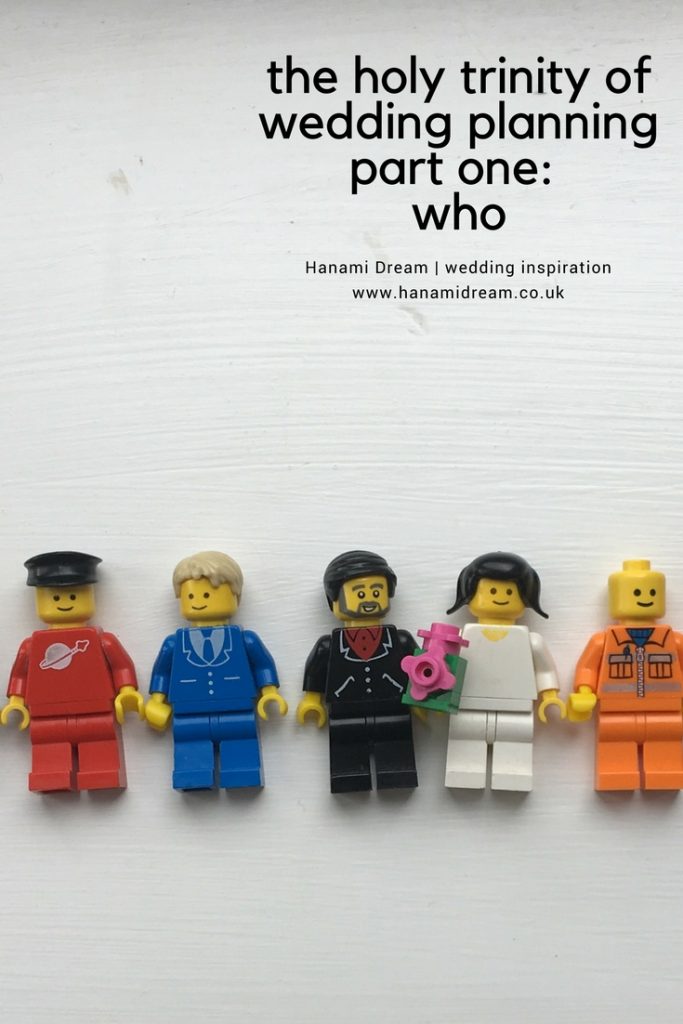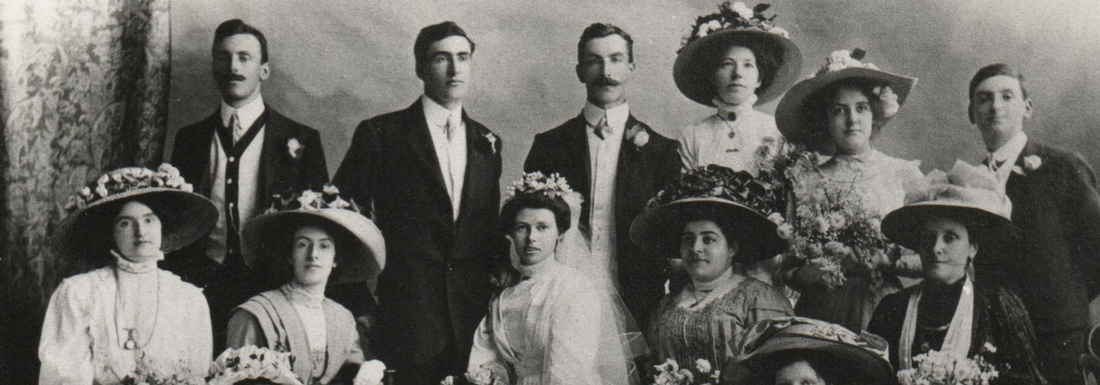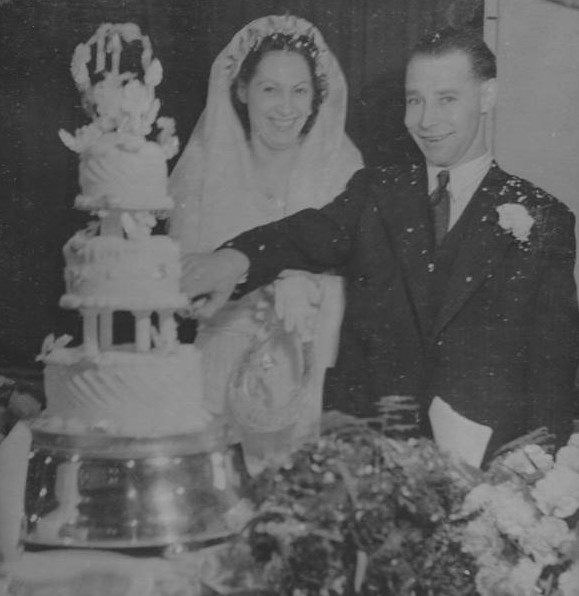 Last month I started to talk about the three key aspects of planning a wedding that pretty much affect every other thing that is connected with your big day. These are where, who and how much (otherwise known as your venue, guests and budget). These are a group of three things that are united. As I mentioned in the post that looked at when to get married, nearly all the decisions you have to make about your wedding will come back to one, two or all of the elements in what I class as the holy trinity of wedding planning.
Last month I started to talk about the three key aspects of planning a wedding that pretty much affect every other thing that is connected with your big day. These are where, who and how much (otherwise known as your venue, guests and budget). These are a group of three things that are united. As I mentioned in the post that looked at when to get married, nearly all the decisions you have to make about your wedding will come back to one, two or all of the elements in what I class as the holy trinity of wedding planning.
This month I’m going to tackle the who element and your all-important guest list (and will look at the where and how much aspects another time).
There will probably be some tough decisions to make with your guest list. Perhaps the reality of your budget means you have to rein in a few of your plans, or other people’s involvement means compromising on some thoughts, or maybe who you want to invite and have on your guest list causes headaches.
Here are 10 things that can dictate and influence who gets to come to the big day:
1. Venue
Firstly the other two elements of the holy trinity of wedding planning (the where and how much) will have a massive say on how many guests you can invite. For example, you can’t decide on a venue without knowing how many people you want to invite. Or maybe you want to pick your dream venue and have the size of the place dictate the number of guests you can invite. The venue could also influence the style of wedding you have based on how many guests you’re allowed in the room for a ceremony, a sit down meal or a standing buffet (this number will vary depending on the number of chairs and tables required for different room set ups).
Where you hold your wedding may affect whether people are able to travel to it. For instance, if you have a destination wedding abroad or hold it in a different part of the country to where your family live. These decisions could mean that elderly relatives can’t make it or people can’t take extra time off work to travel or stay over at the venue. Although, maybe you want to limit the numbers and so eloping or flying off to Vegas may be the best option for you so that you have just a few select guests there. (Bear in mind that infamous episode of Don’t Tell the Bride though and don’t eliminate important guests ie pick one sibling over the other to go to a destination wedding!)
2. Budget
The other part of the holy trinity of wedding planning is the money side of things. How much you have to spend will definitely factor in to how many people you can invite. It might not just be about how many people you can fit in the room, but how many you can afford to be there too. There are some costs that won’t change no matter how many people are there but there a number of variable costs that will alter depending on how many people are enjoying them. These costs include the food, favours, cake, drinks, stationery (such as invites, menus, orders of services etc) and the size of the bridal party. Plus if you are going abroad, consider whether you or your guests pay for their transport, travel and hotel costs.
[Look out for more on budgeting advice for weddings and venue choices in future blog posts about the holy trinity of wedding planning coming soon.]
3. Timing
I covered quite a bit about this aspect in the So, when’s the big day? post last month. Suffice to say that the day of the week could have a big impact on whether people would be able to attend and also if it’s during a holiday time. If you really want to ensure people can make it then the best advice is to give them as much notice as possible. Send out save the date cards or discuss with key people to find out whether they could make it.
4. Law
Let’s bring this back down to the basics. The most important people to be at your wedding are you and your partner. As well as you two, you only really need 3 (or 4) other people to be there if you want an intimate affair. So as long as you’ve got someone to carry out the ceremony (plus a registrar if the person who conducts the ceremony is not authorised to register marriages) and two witnesses then you’re sorted. Anyone else is a bonus.
5. Family
It’s probably best to start with your nearest and dearest. Who could you not do without in order to enjoy the day? These are probably your parents, siblings, family and close friends. If you have a very large family, it could mean that you don’t have many spaces left for lots of other guests!
6. Wedding party
Then there’s the crew that stand alongside you on the big day. These reliable, supportive and trusted friends are who you are putting all your faith in to ensure your day goes smoothly. So pick your team wisely (this was a top tip from one bride in the Wedding day advice from real brides and grooms blog). It is entirely up to you how big to make your wedding party. But consider that how many people are in the bridal party will affect the number of bridesmaids dresses, bouquets, gifts, suits etc that you have to include in the budget (yes, everything comes back to the holy trinity of wedding planning again!) Decide and discuss what you are going to pay for and what elements you require to be paid for by the wedding party as soon as you can.
7. Wallet
Now this is the biggy and probably the most political and controversial aspect. Who is paying for the wedding? If you are paying for your own wedding, you pretty much can decide all elements yourself. Or at least have the final say. However, if the money is coming from someone else you may feel indebted to honour their wishes or requests. For example, if your parents are paying then they may want to invite many of their own guests to the day. Traditionally it is etiquette for the bride’s and groom’s parents to have a proportion of the guest list to allocate themselves. Often it comes down to a bit of compromise. For me, I didn’t want to look around the room and not know the people that were sharing our day. With an intimate occasion, I didn’t want to invite a long-list relative at the sacrifice of inviting a dear friend.
8. Day vs evening
If you have the option to be able to split the day to different elements then you could include additional people as evening guests to join you after the main meal. But try to make sure it’s not just a tagged on event and still includes elements of a wedding day to make them feel like valued additions to the day.
9. Plus ones
You’ll also need to decide whether you are going to include children to your wedding. Are you inviting work colleagues? If you’re not limited to numbers will you allow single guests to bring plus ones that you potentially might not even know?
10. Who?
Ultimately, it all boils down to who you want in the room with you and how well do you want to know the people that are there. Honestly, you’ll start to see pound signs appearing above your friends and family’s heads! I guess, it’s a crude way to think of it but in reality you’ve got to think ‘Would I take this person out to dinner and pay for their meal?’ (or pay for them to have a drink, if you are having a separate evening guest list). Do you know them? Do you like them? Have you seen them recently? Do you want them to share your day with you?
When you look back on your big day your wedding photographs will be a snap shot of your family and circle of friends at that moment in time.
There’s no right or wrong answer on who to invite to your wedding. Nor is there a magical formula that will work it out for you. Ultimately, you should invite guests that you want to share your special day with. When you look around the room you want to know that everyone in the room is an important part of your life and it is precious to have all the people you care about in one place at the same time.
So, you’ve got all your guests to the venue, now where do you seat them? Look out for a guide to organising your seating plan in another blog post soon.


